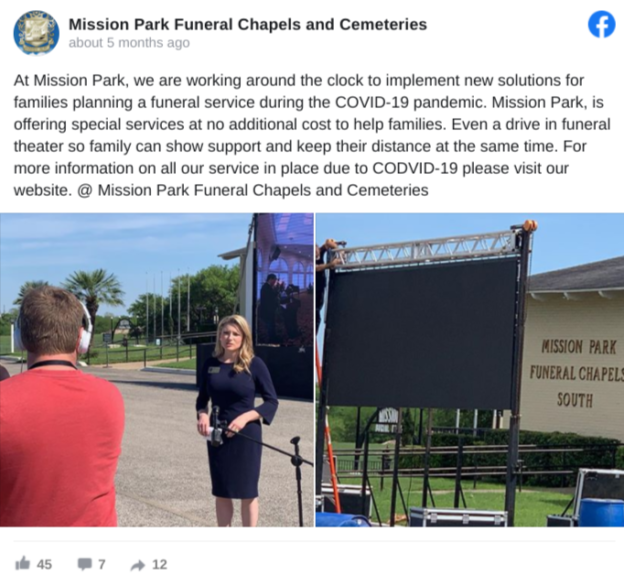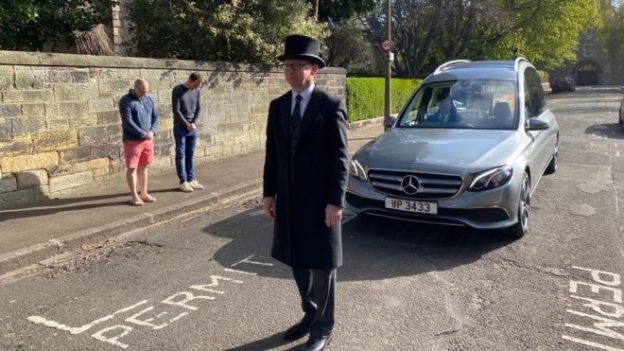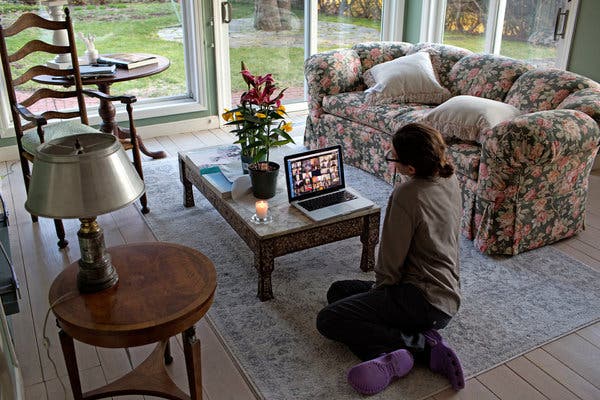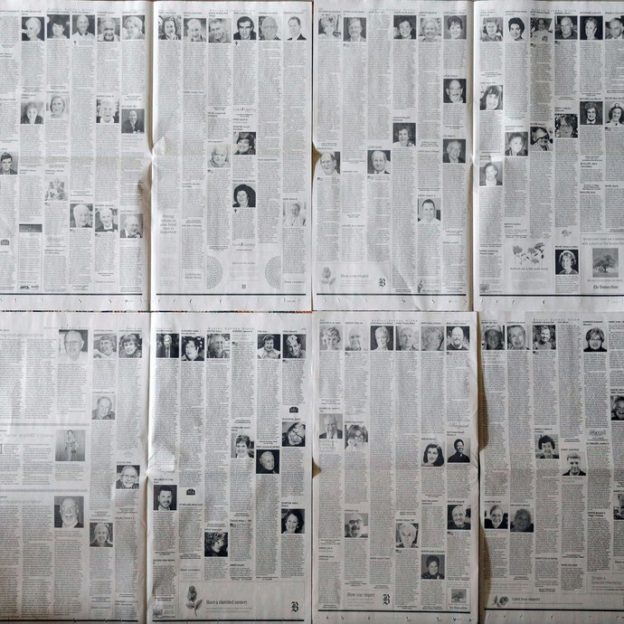7 Ways Death Traditions Around The World Have Transformed Amidst A Pandemic
August 24th, 2020
What happens when a death occurs during the largest pandemic the modern world has seen?
Even though it feels as if most of our world is on hold, death does not stop for a virus. And neither does grief.
So then, traditions must adapt. People must adapt. We must all adapt.
We’ve gathered some examples of how cultures all around the world are adapting their ancient death traditions so they can still be performed and honored in the face of COVID-19. Take a look at them below:
1. Volunteers offer their hands in a traditional Islamic body washing
In Islamic culture, typically, relatives wash their deceased family members themselves within 24 hours of the death. But with restrictions abound, many have turned over this ritual to medical volunteers to ensure the process is complete.
One Islamic woman, who has chosen to perform an important religious ritual of washing the bodies of the dead, has quickly become known as the “Azrael helpers,” or the helpers of the Angel of Death.

2. Christian and Catholic prayers and last rites go virtual.
While many Christian and Catholic folks traditionally receive their last rites from a trusted priest in person, many priests have been forced to move this ritual into a virtual space. Although touch and anointing of the person is typically an important part of the process, many have been forced to adapt amidst the face of a pandemic.
Thankfully, these traditional rituals can still carry power without physical presence. One reverend recently prayed over a couple over Zoom who recently faced a miscarriage. Although she couldn’t be with them in person to share prayer, she shared “I know it was a holy moment to be present with this couple”. Thanks to funeral webcasting services, folks who live far away can simply “log into” the funeral service taking place in a funeral home as well.
3. Traditional viewings transform into drive-in theatre events
In the US, drive-through funerals have increased in popularity. In Texas, Mission Park Funeral Chapels has dubbed a “drive-in funeral theater” to help create a safe space for families to pay their respects to their loved ones. These drive-in style funerals use a broadcasting service so family and friends can listen to the services on their car radio while watching as they’re projected onto screens in parking lots.

4. Lost Scottish customs get revived
Tim Purves, a funeral director in Scotland, has called upon the residents of his community to revive the cultural custom of bowing when a hearse passes by, to honor the dead and show support for the bereaved. “In these times where funerals are limited to a very few close family our chance to support people during a bereavement is limited. It would mean the world to families in a time of sadness,” the funeral director said.

Source: BBC
5. Jewish communities turn to “Zoom Shivas” to get the support they need.
Typically, a shiva is a mourning period that lasts one week. It’s meant to be a time for the griever to be with their memories and feelings, while also receiving a distraction via family and friends so that they can ease their way into the grief process. One woman describes her experience of hosting a Zoom Shiva, saying “a virtual hug isn’t a real hug, and sometimes, I felt very empty. And yet, there was also something very special, a community of people from all over the world that came together around my mother and for me.”

Source: NY Times
6. Chinese tomb sweeping goes virtual.
Chinese families who are ethnically Han typically remember relatives for some time after their deaths with an annual Qingming Festival, or Tomb-Sweeping Day. During this festival, families would come to the grave of the loved one and clean, sweep, pray and give offerings to the dead. With the pandemic keeping families out of cemeteries, cemetery staff have begun livestreaming their tomb sweeping ritual for families.
One website called Heavenly Cemetery offers this virtual tomb sweeping for families, along with “memorial halls” where friends and family can join, as well as the ability to purchase Chinese rice and beer as an offering to the loved one.
7. Newspapers are expanding their obit sections.
The art of the obituary may not be lost after all! According to CNN, “the papers are honoring individual lives through short stories, features and special presentations. And in doing so, they are converting the death toll statistics of Covid-19 into deeply human stories”. Christy Gutowski, the lead obits reporter, says “I don’t view it as a typical obit with a set template…I am writing a life story to ensure history properly remembers someone’s loved one. They are not a statistic or data point.”

Source: Brian Snyder/Reuters
If you’d like to share ways you’ve experienced death traditions changing amidst this pandemic, please tell us about them in the comments below!




[…] post 7 Ways Death Traditions Around The World Have Transformed Amidst A Pandemic appeared first on funeralOne […]
[…] https://blog.funeralone.com/grow-your-business/death-traditions-pandemic/ […]
Im a celebrant in the UK I noticed during lockdown 1 that families felt the need to share stories but they could not hold a wake. They had the funeral ceremony with 8 people present but they had to sit 6 feet away from each other. The ceremony was 15 minutes long.
I began to hold online wakes. Think campfire with candles – think glass of wine- think sharing of stories. Just offering this space created pockets of community. A community of care and compassion that shared stories with each other. Tears, laughter, warmth and love offered a balm to broken lives. Sometimes we forget that holding space and time with and for each other can be as valuable as holding hands.
I really appreciate this insight Tracy. That’s a great idea, thanks for sharing! Would you be interested in doing an interview with us about your experience? We’d love to write an article about this topic!